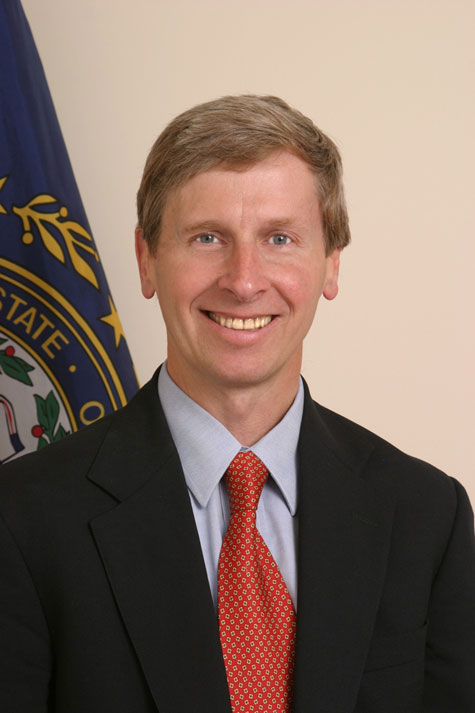
CALLS EQUALITY "A VICTORY FOR ALL THE PEOPLE" Democratic New Hampshire Governor John Lynch.
|
Much of New England joined the march toward marriage equality this year, but in the comparably conservative Granite State, its legalization has heated up a partisan battle for control of the governorship in 2010, promising that this political war isn't quite over.
On June 3, Governor John Lynch — a middle-of-the-road Democrat who said he was against same-sex marriage during his campaigns — signed the law giving gay and lesbian couples the right to marry in the Granite State starting January 1, calling it "a victory for all the people of New Hampshire."
The law was also a victory for New Hampshire Democratic Party chairman Ray Buckley, a longtime politician and founding member of New Hampshire Citizens for Gay and Lesbian Rights, a pro-marriage activist group. "The Granite State has long been a place where individual freedom has been revered and upheld, and today Governor Lynch and legislative leaders affirmed our state's values by voting to recognize all citizens as equal under the law," he said in a statement at the time.
However, conservative critics charged that out-of-state money and lobbyists promoting "the gay agenda" helped pass legislation that New Hampshire residents weren't ready to support.
Leading the opposition was Cornerstone Policy Research (CPR), a Manchester-based conservative, family-focused think tank with a mission of "preserving and strengthening the institution of marriage."
"In New Hampshire, it was no secret that the Human Rights Campaign dumped a lot of money into the state," says Kevin Smith, executive director of CPR's legislative action group, also noting the effect of issue-advocacy groups (also called "527 groups" after the section of the US tax code under which they are established) set up by Colorado multi-millionaire Tim Gill and targeted fundraising by Democratic leaders. "[Buckley] is getting money into the state for those issues. We're combating that. That certainly helps them, but I think at the end of the day it comes down to the people of New Hampshire and the direction they want to go in."
Among the organizations linked on the CPR Web site are the non-profit Parents and Friends of Ex-Gays and Gays (PFOX), which says on its site that it helps people "make the personal decision to leave homosexuality" and Exodus International, a similar group that does not recognize homosexuality as a "valid orientation."
While CPR's views on homosexuality are far from mainstream, CPR-Action emerged as a political force this year, attacking Lynch for flip-flopping in two May television ads and a number of press releases as the legislation volleyed around the State House. But after the bill passed on June 3, the group appeared to dropped the issue.
In a recent phone interview, Smith says that isn't the case — New Hampshire's laws just require patience and effort to repeal. He claims that CPR's most recent telephone poll, which reached 50,000 households, found that 64 percent wished to uphold the definition of traditional marriage; these people aren't anti-gay "hate-mongers," he stresses, saying they deserve a voice.
Unlike Maine, where opponents immediately organized a petition for a people's veto referendum and hired Schubert Flint Public Affairs, the public-relations firm behind California's divisive Proposition 8, New Hampshire voters don't have that ability.